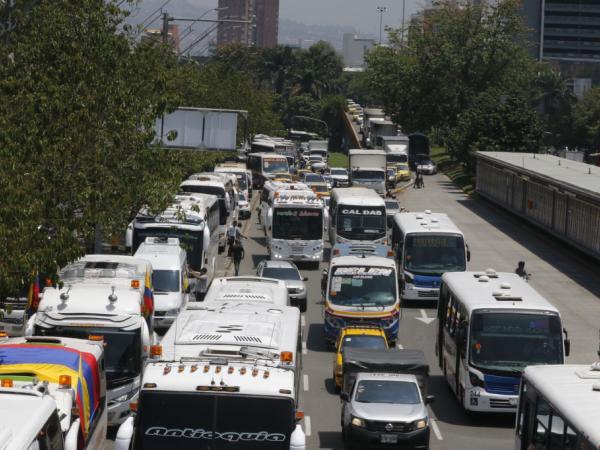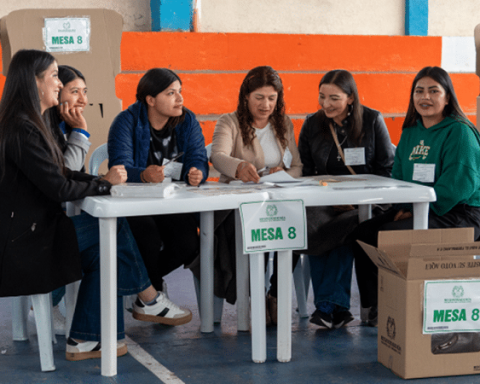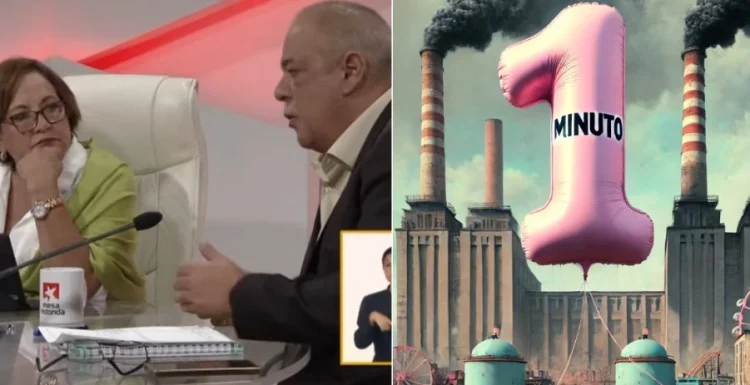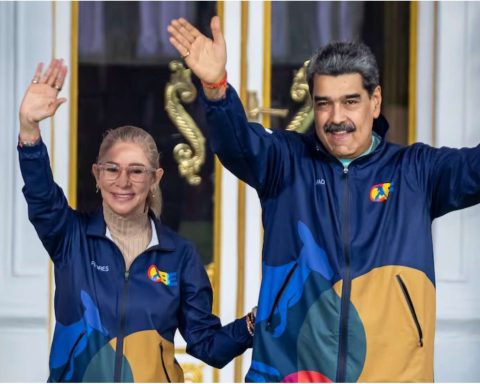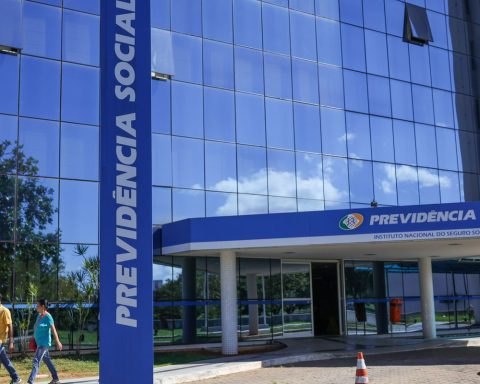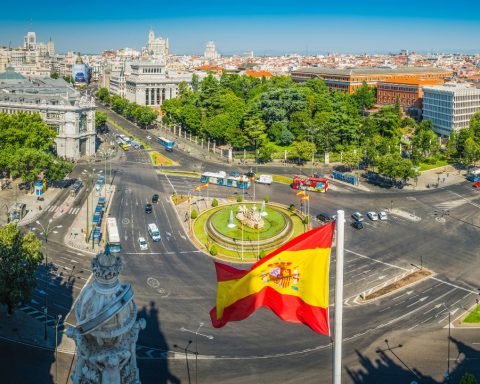On the second day of meetings regarding the blockades on different roads in the country caused by the increase in diesel fuel prices by $1,904, a heated debate took place from 10:00 in the morning.
At the meeting the The government was emphatic in planning a route to raise the $6,000 needed to reach international parity, while the transporters remained firm in that they will not accept a fuel increase and that it is necessary to start the working groups again.
You may be interested in: Alert for food and medicine shortages in Bogotá and Cundinamarca
In the morning, the Minister of Finance, Ricardo Bonilla, assured that the current increase will be maintained for the month of September and the consensus It could be changing the dates and the way in which the price of this fuel is raised. An argument that annoyed the transporters.
The head of the portfolio said that this decision was made taking into account the working groups with the transporters’ unions and that the initial proposal was to start a process like that of gasoline (monthly increase). However, in other groups it was decided that it would be done in three stages in order to update freight rates, which is why the Government decided to do it this way.
“Diesel impacts the price of goods being transported, due to the cost of transport itself. The calculation is that this impact is only between 0.28 and 0.3 of inflation, nothing more, and this is a process that the country must recover from a practice that lasted more than 30 years, which was that fuel prices were adjusted every month, thus avoiding this impact.” Bonilla pointed out.
The Minister assured that the country currently demands 12 million gallons of this fuel per day, double what it did six years ago, “This increases the gap in the FEPC.”
Read also: Sales in Bogotá have fallen by 80% due to the transport strike, said Fenalco
Truckers strike 2024
Nestor Gomez – The Weather
On the other hand, Nidia Hernández, president of Colfecar, as well as other private actors, assured that fuel prices are not being subsidized, only parity with the international value of fuels is being sought, a factor that should not be this way, since the country is a producer of its fuel and the formula with which it is charged should be modified.
“It has been wrongly said that it is a subsidy and it is not and we do not pay less than what it costs Ecopetrol, but rather less than what Ecopetrol wants to earn, they cannot force us to pay the international price because it is not true and it is not being imported here,” Hernandez said.
“We never agreed to increase it, but rather to review the formula. We do not want to lose the country’s competitive advantage, this not only affects the transport sector but all economic sectors. In addition, this moment is not conducive to increasing the diesel fuel due to the lack of updating in Sicetac, there are no dump trucks, light vehicles, refrigerated vehicles, among others,” he added.
He also indicated that other factors must be considered, such as the increase in the inputs of the transporters, the minimum wage, the decrease in the load and the lack of updating of the Sicetac, for which It is not a good time for your finances.
Also read: Food prices in Bogotá have risen by up to 60% since the truckers’ strike began

Truckers Strike 2024
Javier Alvarez/CEET
Proposals
Initially, the transporters proposed repealing the resolution that confirmed the increase in diesel fuel by $1,904 in order to start the working groups again and reach a consensus on the increase in diesel. This alternative was not well received by the Government.
In this way, the transporters put on the table, as their last card, not to repeal, but to modify the resolution, which would basically be the same proposal: to lower the price of fuel again by $1,904 and start the work tables again to reach a midpoint on the increases.
The Minister of Finance, in this regard, said that a fundamental solution had to be found, not just modifying the current increase. He proposed making half of the adjustment this year and the other half in January. This was not welcomed by the transporters.
Paula Galeano Balaguera
Portfolio Journalist
